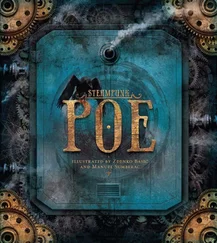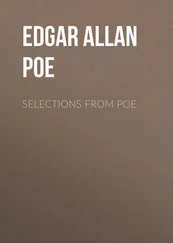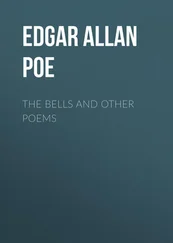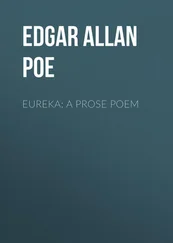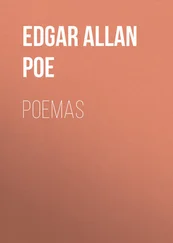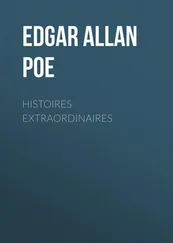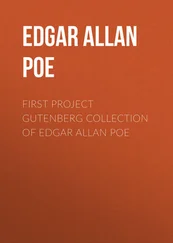Edgar Poe - CRITICISM
Здесь есть возможность читать онлайн «Edgar Poe - CRITICISM» весь текст электронной книги совершенно бесплатно (целиком полную версию без сокращений). В некоторых случаях можно слушать аудио, скачать через торрент в формате fb2 и присутствует краткое содержание. Жанр: на английском языке. Описание произведения, (предисловие) а так же отзывы посетителей доступны на портале библиотеки ЛибКат.
- Название:CRITICISM
- Автор:
- Жанр:
- Год:неизвестен
- ISBN:нет данных
- Рейтинг книги:3 / 5. Голосов: 1
-
Избранное:Добавить в избранное
- Отзывы:
-
Ваша оценка:
- 60
- 1
- 2
- 3
- 4
- 5
CRITICISM: краткое содержание, описание и аннотация
Предлагаем к чтению аннотацию, описание, краткое содержание или предисловие (зависит от того, что написал сам автор книги «CRITICISM»). Если вы не нашли необходимую информацию о книге — напишите в комментариях, мы постараемся отыскать её.
CRITICISM — читать онлайн бесплатно полную книгу (весь текст) целиком
Ниже представлен текст книги, разбитый по страницам. Система сохранения места последней прочитанной страницы, позволяет с удобством читать онлайн бесплатно книгу «CRITICISM», без необходимости каждый раз заново искать на чём Вы остановились. Поставьте закладку, и сможете в любой момент перейти на страницу, на которой закончили чтение.
Интервал:
Закладка:
Peace to the just man's memory- let it grow
Greener with years, and blossom through the flight
Of ages- let the mimic canvass show
His calm benevolent features.
Does prodigal Autumn to our age deny
The plenty that once swelled beneath his sober eye?
Look on this beautiful world and read the truth
In her fair page.
Will then the merciful One who stamped our race
With his own image, and who gave them sway
O'er Earth and the glad dwellers on her face,
Now that our flourishing nations far away
Are spread, where'er the moist earth drinks the day,
Forget the ancient care that taught and nursed
His latest offspring?
He who has tamed the elements shall not live
The slave of his own passions.
When liberty awoke
New-born, amid those beautiful vales.
Oh Greece, thy flourishing cities were a spoil
Unto each other.
And thou didst drive from thy unnatural breast
Thy just and brave.
Yet her degenerate children sold the crown.
Instead of the pure heart and innocent hands Among thy gallant sons that guard thee well
Thou laugh'st at enemies. Who shall then declare Far like the comet's way thro' infinite space.
The full region leads
New colonies forth.
Full many a horrible worship that, of old,
Held o'er the shuddering realms unquestioned sway.
All these instances, and some others, occur in a poem of but thirty-five stanzas- yet in only a very few cases is the license improperly used. Before quitting this subject it may be as well to cite a striking example from Wordsworth There was a youth whom I had loved so long,
That when I loved him not I cannot say.
Mid the green mountains many and many a song
We two had sung like gladsome birds in May.
Another specimen, and one still more to the purpose may be given from Milton whose accurate ear (although he cannot justly be called the best of versifiers) included and balanced without difficulty the rhythm of the longest passages.
But say, if our Deliverer up to heaven
Must re-ascend, what will betide the few
His faithful, left among the unfaithful herd,
The enemies of truth? who then shall guide
His people, who defend? Will they not deal
More with his fo than with him they dealt?
Be sure they will, said the Angel.
The other metrical faults in The Ages are few. Mr. Bryant is not always successful in his Alexandrines. Too great care cannot be taken, we think, in so regulating this species of verse as to admit of the necessary pause at the end of the third foot- or at least as not to render a pause necessary elsewhere. We object, therefore, to such lines as
A palm like his, and catch from him the hallowed flame.
The truth of heaven, and kneel to Gods that heard them not. That which concludes Stanza X, although correctly cadenced in the above respect, requires an accent on the monosyllable the, which is too unimportant to sustain it. The defect is rendered the more perceptible by the introduction of a Trochee in the first foot.
The sick untended then
Languished in the damp shade, and died afar from men.
We are not sure that such lines as
A boundless sea of blood and the wild air.
The smile of heaven, till a new age expands. are in any case justifiable, and they can be easily avoided. As in the Alexandrine mentioned above, the course of the rhythm demands an accent on monosyllables too unimportant to sustain it. For this prevalent heresy in metre we are mainly indebted to Byron, who introduced it freely, with the view of imparting an abrupt energy to his verse. There are, however, many better ways of relieving a monotone.
Stanza VI is, throughout, an exquisite specimen of versification, besides embracing many beauties both of thought and expression.
Look on this beautiful world and read the truth
In her fair page; see every season brings
New change, to her, of everlasting youth;
Still the green soil with joyous living things
Swarms; the wide air is full of joyous wings;
And myriads, still, are happy in the sleep
Of ocean's azure gulfs, and where he flings
The restless surge. Eternal love doth keep
In his complacent arms the earth, the air, the deep. The cadences, here, at the words page, swarms, and surge respectively, cannot be surpassed. We shall find, upon examination, comparatively few consonants in the stanza, and by their arrangement no impediment is offered to the flow of the verse. Liquids and the most melodious vowels abound. World, eternal, season, wide, change, full, air, everlasting, wings, flings, complacent, surge, gulfs, myriads, azure, ocean, sail, and joyous, are among the softest and most sonorous sounds in the language, and the partial line after the pause at surge, together with the stately march of the Alexandrine which succeeds, is one of the finest imaginable of finales Eternal love doth keep
In his complacent arms, the earth, the air, the deep. The higher beauties of the poem are not, we think, of the highest. It has unity, completeness,- a beginning, middle and end. The tone, too, of calm, hopeful, and elevated reflection, is well sustained throughout. There is an occasional quaint grace of expression, as in
Nurse of full streams, and lifter up of proud
Sky-mingling mountains that o'erlook the cloudor of antithetical and rhythmical force combined, as in
The shock that burled
To dust in many fragments dashed and strewn
The throne whose roots were in another world
And whose far-stretching shadow awed our own.
But we look in vain for something more worthy commendation. At the same time the piece is especially free from errors. Once only we meet with an unjust metonymy, where a sheet of water is said to
Cradle, in his soft embrace, a gay
Young group of grassy islands. We find little originality of thought, and less imagination. But in a poem essentially didactic, of course we cannot hope for the loftiest breathings of the Muse.
To the Past is a poem of fourteen quatrains- three feet and four alternately. In the second quatrain, the lines
And glorious ages gone
Lie deep within the shadow of thy womb. are, to us, disagreeable. Such things are common, but at best, repulsive. In the present case there is not even the merit of illustration. The womb, in any just imagery, should be spoken of with a view to things future; here it is employed, in the sense of the tomb, and with a view to things past. In Stanza XI the idea is even worse. The allegorical meaning throughout the poem, although generally well sustained, is not always so. In the quatrain
Thine for a space are they
Yet shalt thou yield thy treasures up at last;
Thy gates shall yet give way
Thy bolts shall fall inexorable Past! it seems that The Past, as an allegorical personification, is confounded with Death.
The Old Man's Funeral is of seven stanzas, each of six lines- four Pentameters and Alexandrine rhyming. At the funeral of an old man who has lived out his full quota of years, another, as aged, reproves the company for weeping. The poem is nearly perfect in its way- the thoughts striking and natural- the versification singularly sweet. The third stanza embodies a fine idea, beautifully expressed.
Ye sigh not when the sun, his course fulfilled,
His glorious course rejoicing earth and sky,
In the soft evening when the winds are stilled,
Sings where his islands of refreshment lie,
And leaves the smile of his departure spread
O'er the warm-colored heaven, and ruddy mountain head. The technical word chronic should have been avoided in the fifth line of Stanza VI No chronic tortures racked his aged limb.
The Rivulet has about ninety octo-syllabic verses. They contrast the changing and perishable nature of our human frame, with the greater durability of the Rivulet. The chief merit is simplicity. We should imagine the poem to be one of the earliest pieces of Mr. Bryant, and to have undergone much correction. In the first paragraph are, however, some awkward constructions. In the verses, for example
Читать дальшеИнтервал:
Закладка:
Похожие книги на «CRITICISM»
Представляем Вашему вниманию похожие книги на «CRITICISM» списком для выбора. Мы отобрали схожую по названию и смыслу литературу в надежде предоставить читателям больше вариантов отыскать новые, интересные, ещё непрочитанные произведения.
Обсуждение, отзывы о книге «CRITICISM» и просто собственные мнения читателей. Оставьте ваши комментарии, напишите, что Вы думаете о произведении, его смысле или главных героях. Укажите что конкретно понравилось, а что нет, и почему Вы так считаете.

